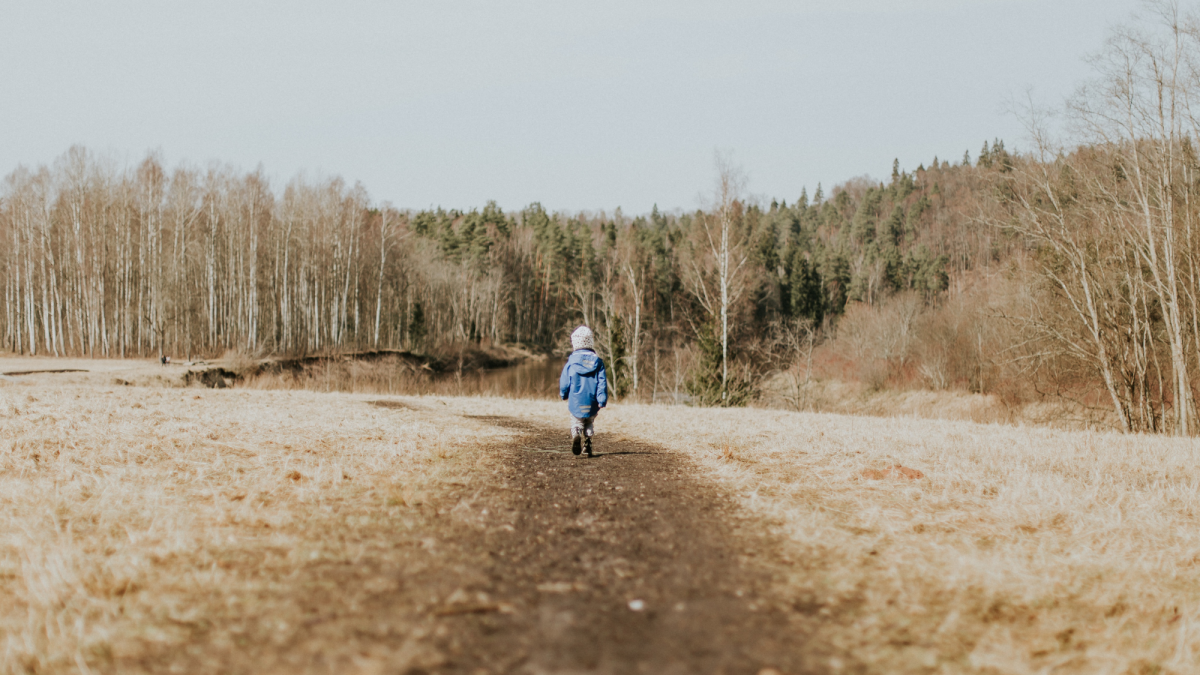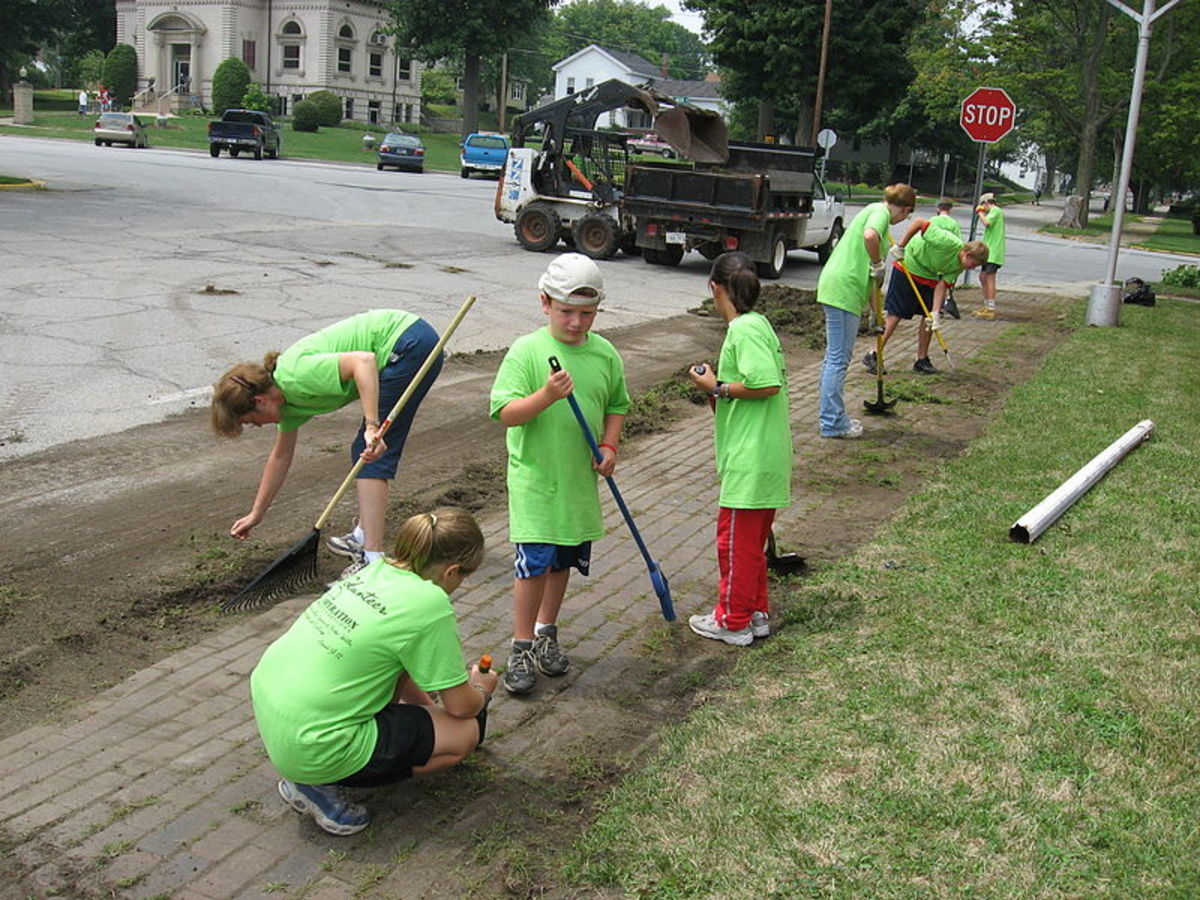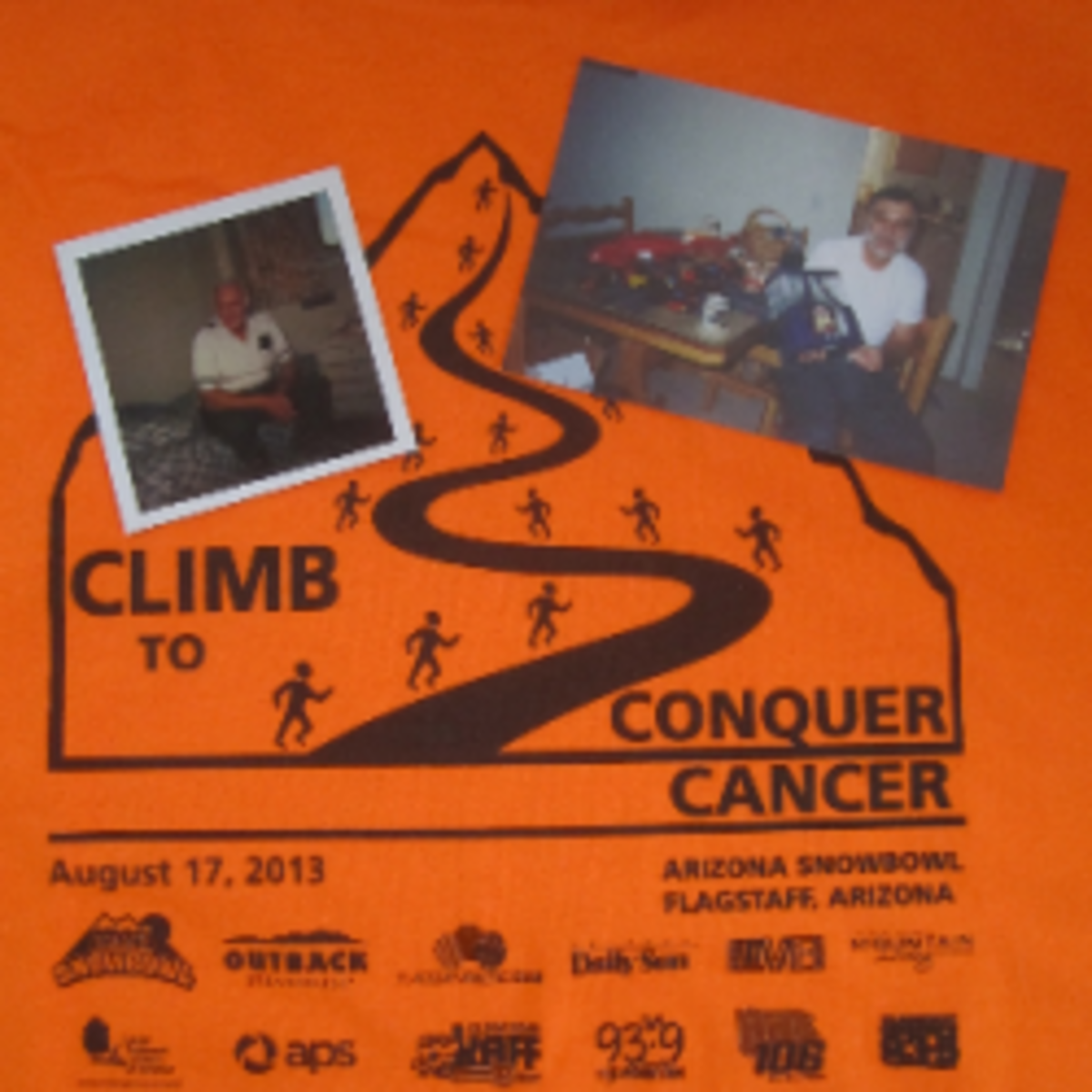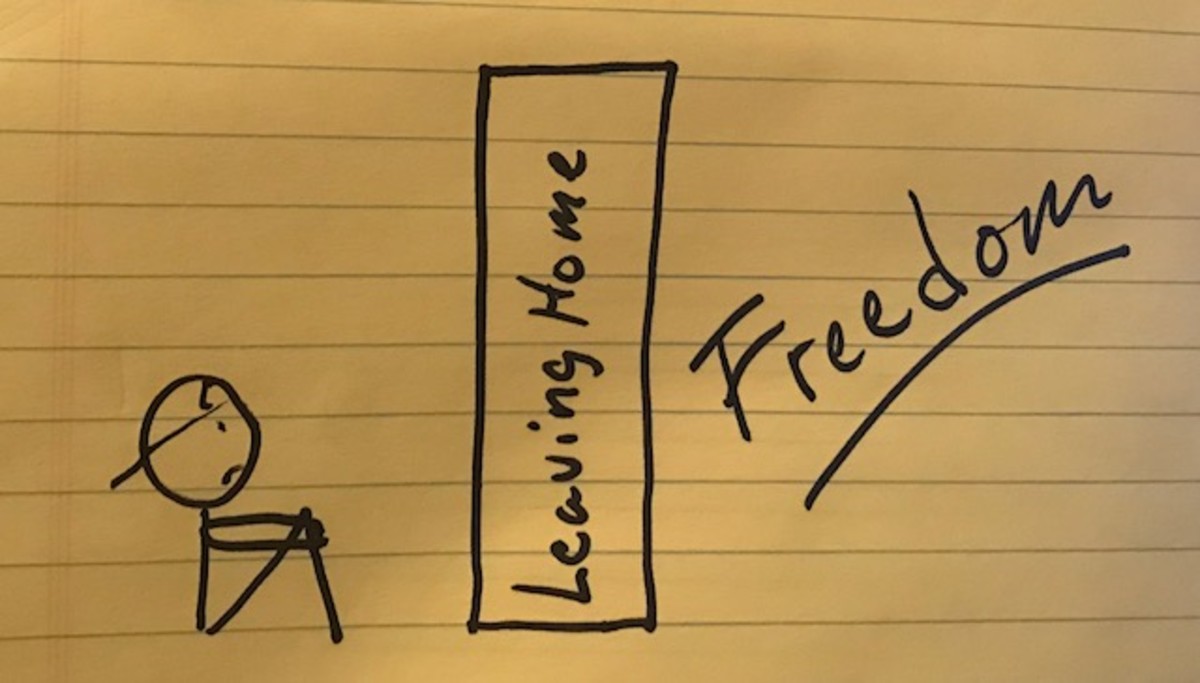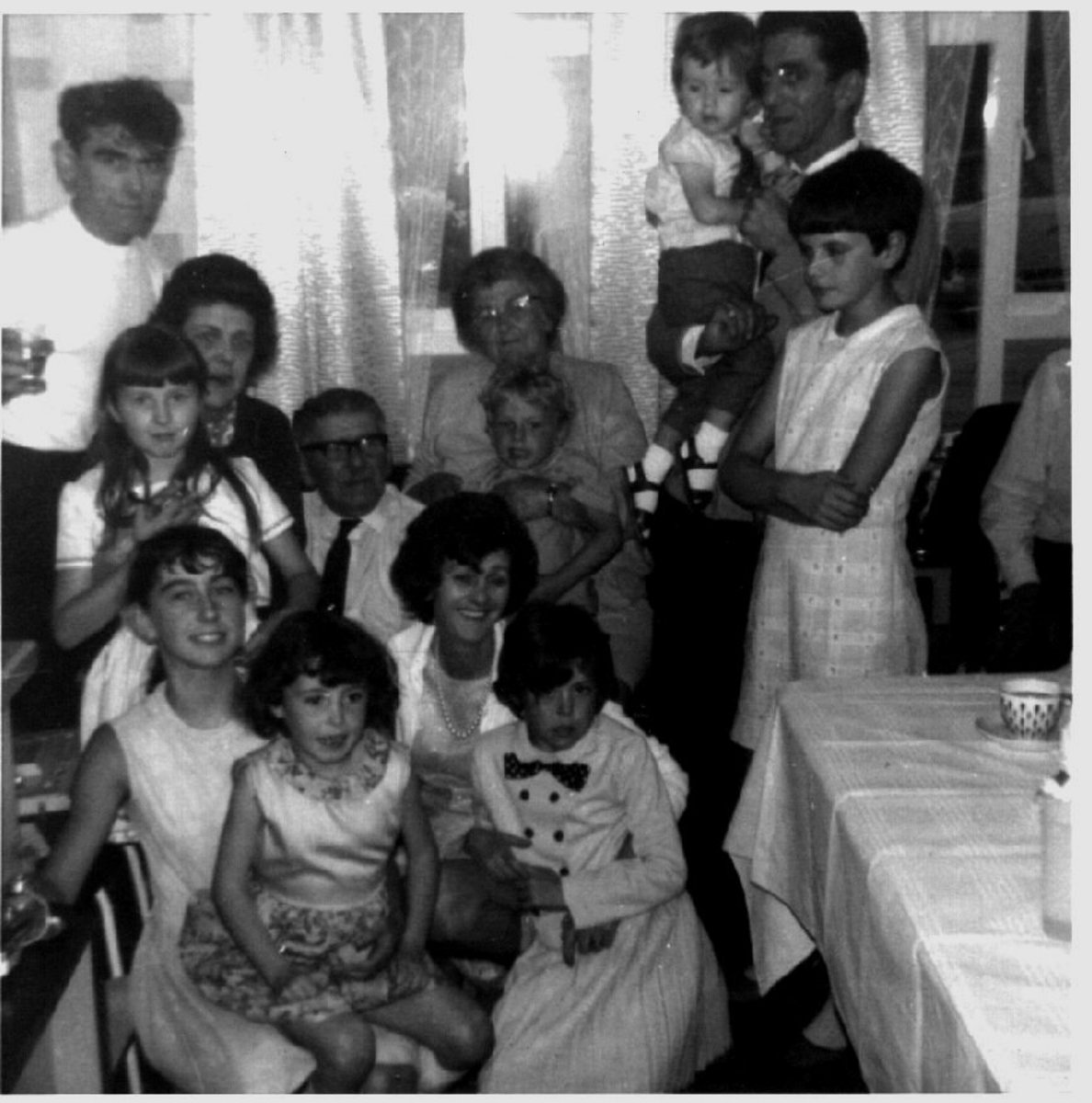Volunteering With Children: How Kids Can Make a Difference
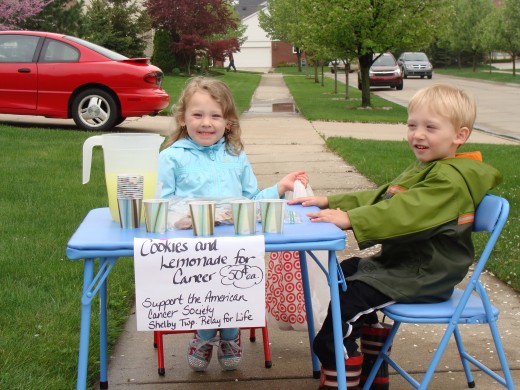
Teaching Children to Give Back to the Community
We live in a very narcissistic society. Every time that you turn on the television or head to the check out line at the grocery store, there is some show or article about how someone acted out in some way because they felt they were owed one thing or another. Much of the television shows on tv are now “reality” based and the premise of most of the shows is how radical can I be in order to have the highest ratings and hence make the most money. So how as responsible parents do we compete with that kind of display? I’ll save my rant about how parents are responsible for limiting what and how much our children view for another hub. For this hub is about how we can guide our children to give back to others in need.
So as a parent of two young children, who essentially want for nothing, how do I guide them to understand that it is an act of humanity to see those in need and help in ways that they are able? My mother was a wonderful role model in seeing the humanity in others and teaching my sister and myself to have compassion for others, however we were not very active in philanthropy. This is one area that I feel that I can build upon the foundation that was started by my mother and bring it to the next level for my own children.
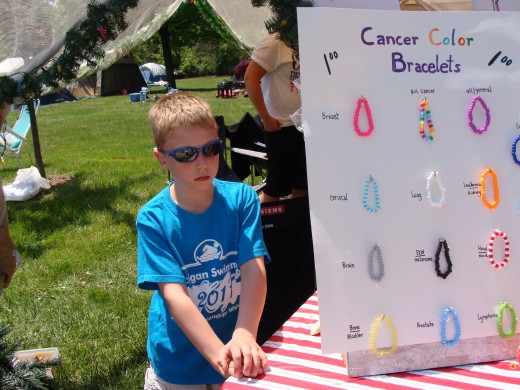
How old should children be to give to others in need?
It is my personal belief that the younger that you start to teach your children the importance of giving to others, the more thoughtful, compassionate people that they will become. Just as we don't wait until kindergarten to introduce our children to books or letters or numbers, the earlier that they start, the more a part of them it will become. These acts of giving back do not have to be huge endeavors. Start small and help your child to understand why you are doing the things that you are doing.
Children and Giving
For additional information on how to build your child's sense of giving, check out this great hub about Mentoring A Child On Giving by teaches12345.
Acts of Kindness to Others
Giving to others does not have to mean a monetary or object donation. A simple act of kindness it giving back to someone who needs help. These acts of kindness can be simple things that may be very easy for you but would mean the world to someone else. For example, you could encourage your older child to cut the grass or shovel the snow for an elderly or disabled neighbor. You could help your children organize a toy drive for other children in a women's or homeless shelter.
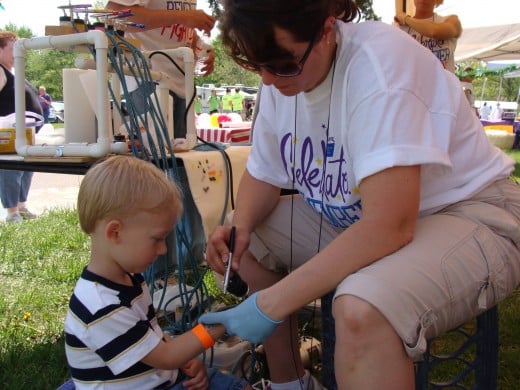
Donating to Charities
Donating can mean many things to many people. For some it means donating your time, for others it means giving money or goods to others who are less fortunate. So what can children donate?
- Toys, books, and stuffed animals. Go through your belongings and choose items that you no longer use but are in relatively good condition.
- Time. We seem to have so little time these days. Busy is a four letter word in today's world. It is important that we schedule time to give back to others. There are many ways that children can do participate.
- Money. Perhaps donate a percentage of your allowance, birthday or Christmas money to a charitable organization.
- Canned or boxed foods. Especially with the economy today, food banks are always low on food for the underprivileged. Help your child to organize a food drive for one of these organizations.
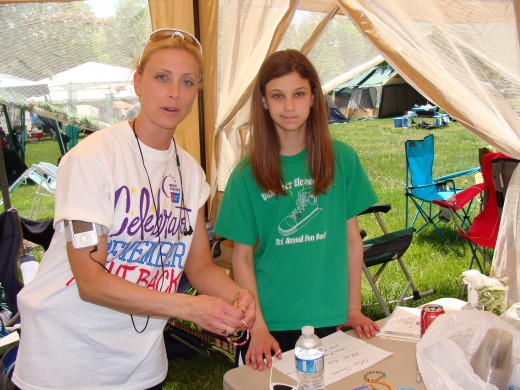
Fundraising Activities for Kids
I have participated in the American Cancer Society's Relay for Life for the last three years. Each year my own experience in the event has grown and I have become much more involved. I have always brought my children (now three and four) to participate in the activities. In the past they have shared in the event by spending money at booths for different things and the money will be donated by that team to the American Cancer Society. This was how they "donated."
I decided that this year they were old enough to participate in the fundraising. Fundraising can be tough to do. They too were participating in the walk and I wanted them to understand not just why we were walking but the process of raising money for the walk. So during our garage sale they had a lemonade and cookie sale. We placed a sign that the money would be donated to the American Cancer Society and people were very generous with their donations. My kids were able to raise almost $25 from their lemonade stand. Not too bad for a day's work.
Children often do fundraising for their schools so they will have a concept of what this means. But what about having a fundraiser at school for a charitable cause? My school is a uniform school. My principal allowed our students to "dress down" for $1 one day and that money went toward my cancer walk. The kids were able to help in the fundraising and have a little something extra at the same time.
At our church's Vacation Bible School this summer, they held a penny contest. It was set up so that the boys competed against the girls to see who could bring in the most pennies. Each day they were counted and announced to encourage the children to bring in more the next day. In the end the kids raised almost $350 for a local charity. The idea was simple, the kids had fun, and they help an organization in need.
Opportunities for Giving Back
Philanthropic Opportunities
| Age Range
| Where
|
|---|---|---|
Reading to the elderly, ill, or very young.
| School aged children who have already learned to read.
| nursing homes, hospitals
|
Donating toys, stuffed animals, books
| 2 years +
| women's/children's shelters, children's hospitals, even less fortunate schools
|
Giving money
| all ages
| church, non-profit organizations, any place that would have meaning to your child
|
Prepare food boxes for the less fortunate
| 4 or 5 years +
| local food bank
|
Serve meals
| 7 years +
| local soup kitchen or homeless shelter
|
This is a small list of ideas to help children get started in giving back.
Getting Started
It doesn't really matter what you decide to do to get started, the point is to start. Compassion is something that is found in children naturally but can be lost if not fostered. By creating opportunities for your children to give back to others in some way, you are developing a sense of humanity in them. The more often that you provide and encourage these opportunities for them, the more natural that they will become for them as they grow into independent members of society. I know that those are the kind people that I want in the world around me.


